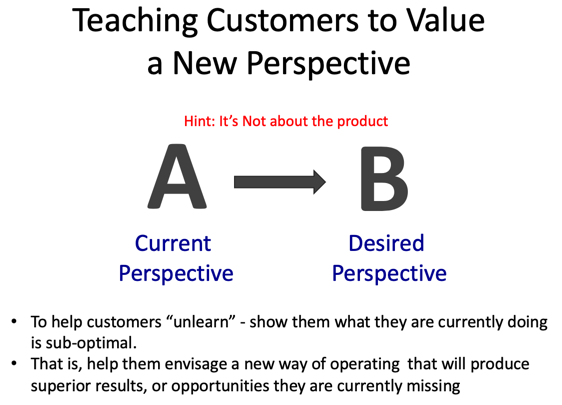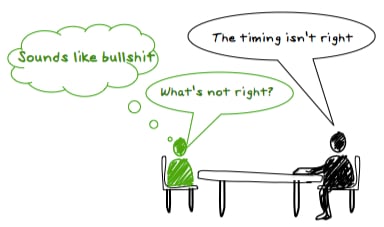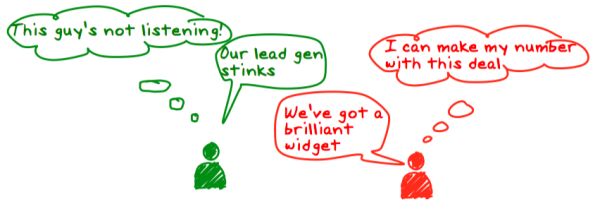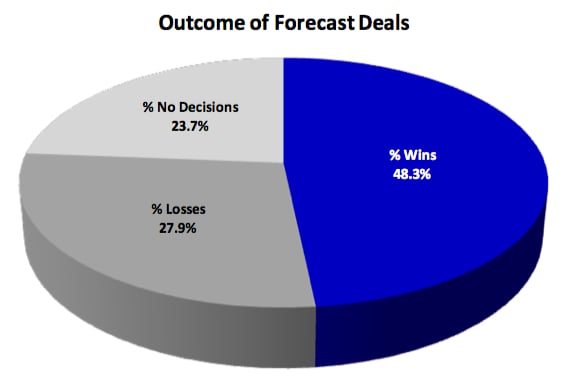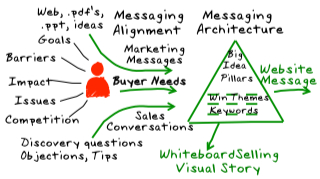People ask me this question when they are curious about creating whiteboards, and the truth is that it depends on your purpose and desired outcome. In this article, I discuss whiteboard types and their purpose and a process for creating a whiteboard story.
4 min read
How Much Does a Whiteboard Story Cost to Create?
By Mark Gibson on Mon, Sep 30, 2019
Topics: consultative selling challenger selling storytelling whiteboard storytelling commercial insight
6 min read
The Lost Art of Closing - A Modern Sales Classic
By Mark Gibson on Wed, Nov 01, 2017
This post is a review of Anthony's excellent second book, The Lost Art of Closing.
Topics: consultative selling anthony iannarino the lost art
4 min read
Developing Rapport through Mirroring, essential Sales Skill Training
By Mark Gibson on Tue, Jul 31, 2012
However the scientific community occasionally publishes something that proves and supports the adoption and use of certain techniques that have long been observed and adopted as part of NLP, and when they do - I like to use it so that the skeptics in the audience have the proof they need to take on that particular belief and use the tools.
I have embedded this 2007 Sociometrics video from MIT Prof. Alex Pentland to introduce concepts being discussed in this article. Pentland and his colleagues have come a long way in their understanding of the dynamics of human communication and group interaction since this video was recorded and there are many other videos and studies published and accessible in a few keystrokes.
Topics: consultative selling consultative sales training selling skills
5 min read
The Four Sales Objections & What Buyers Really Mean - Exercise
By Mark Gibson on Fri, Jul 27, 2012
The Four Big Objections
This post explores the nature of objections and examines their meaning and offers an interactive game at the end of the article to test skills in unpacking the buyers objections and fluffy language.There are hundreds of ways for buyers to say no to a salesperson, but there are really only four basic objections and all other objections are variants of there four.
The objections in Table 1. are the type of objection we are likely to see early in a sales cycle and very typically when we on the phone trying to advance the sale and set the next appointment.
Objections typically occur when the sales person is trying to advance the sale beyond the buyer's readiness to move to the next step. "I'm not interested" is a variant of I don't have time and usually occurs when cold-calling and having asked the buyer to something they are not ready to do.
B2C |
B2B |
1. I don't have the time |
The timing isn't right |
2. I can't afford it |
We don't have the budget |
3. It won't work for me |
It won't work here |
4. I don't believe you |
I don't trust you = we don't see a fit |
What Buyers Really Mean
If we get to the end of the sales-cycle in B2B selling and we get objections like the ones in Table 2. below, we are in big trouble.Objections are far more likely to come up in the qualification phase or during evaluation, but when salespeople don't listen and miss the buyers comments, questions and feedback, then these questions or concerns typically resurface as objections.
Objections typically occur as a result of unanswered questions that salespeople missed earlier in the sales cycle, which is why reversing the buyers question is so important.
1. It won’t work for us! |
which means |
you have an adversary in the decision group who prefers the status quo. |
2. We’re not convinced of the ROI! |
which means |
either you did a poor job in diagnosing needs, or you should not be in this deal. |
3. The timing isn’t right! |
which means |
we've been wasting your time |
4. The project is delayed! |
which means |
we prefer the competition and are busy talking to them |
5. We don’t believe you can deliver what we need! |
which means |
we are talking to someone else who can. |
6. We've decided to proceed with a different project! |
which means |
a competitor has cleverly changed the ground rules and they are proceeding with them. |
7. This needs board sign-off! |
which means |
we've been wasting your time |
I'm grateful to Stephen Allott who shared the above chart, based on his experience as president at Micromuse. Having sold B2B technology products and services around the World for more than 30 years, I have heard every one of these more than a few times.
With the above chart there are of course exceptions and when there is a trusted advisor relationship and rapport, the buyer may well be telling the truth. Only yesterday I was told by the EVP of a mid-sized technology company that they had corporate initiative under-way, (code for - we're doing an acquisition), that prevented them from focusing on our messaging and whiteboard story development until mid Q4 = a nice way to say "the timing isn't right".
Overcoming the Four Big Objections
The following excerpt is from Wiki "selling technique" "While many sales techniques offer specific advice on how to handle objections and stalls, Sandler suggests that only the objecting client is able to remove the objection"I'm in complete agreement with David Sandler on this one and am not going to offer specific technique to overcome objections...there are hundreds of entries on Google and Youtube if you are interested.
I am offering an exercise in the use of precision language to get salespeople thinking about how to uncover the underlying reason for the objection, so that a conversation can occur around addressing the buyers concern.
Precision in Language Exercise
The following exercise is excerpted from the Selling Psychology section of our Selling in the Internet Age, Adaptive E-Learning program. It uses a number of linguistic techniques and should be both amusing as well as informative.
Take Aways
- Objections are not neccessarily a bad thing during the sales cycle. I would prefer to have objections, that way I know there is interest.
- The opposite scenario is proceeding through the sales cycle and getting no objections, which often means that you are being invited along for the bake-off and they are actively engaged with another vendor...who is getting objections.
- Language and communication skills are traits of the most successful salespeople. They can be learned and will pay a dividend for those sales people prepared to learn and deliberately practice using them.
Topics: consultative selling listening skills salescraft
2 min read
Consultative Selling Secrets – and other myths
By Mark Gibson on Tue, Jul 24, 2012
Consultative Selling Myths
Sales books, blog-posts and training courses that offer “consultative selling secrets” and magical closing-techniques, constantly amuse me.Most of the ideas in these so-called secrets are common sense and have been in practice since the “Fuller-brush man” came a calling.
If there truly were secrets to success in consultative selling or any other form of selling, then nobody would know them. Another myth is "Consultative Selling is Dead", but I will deal with that one another time...clearly it is not.
The truth is that there is a growing body of knowledge around consultative selling best-practices that anyone with a Web browser and an ability to read can access.
Great sales people are great communicators with strong ego-drive and the self-discipline, to do on a daily basis the little things that average sales people do not, that lead to successful sales outcomes.
Consultative Selling Discipline
What really matters in consultative selling and professional selling in general are the understanding, mastery and daily practice of the following disciplines, skills and techniques;- A genuine desire to succeed (fire-in-the-belly) fuelled by realistic short and long term goals which extend beyond your immediate sales goals. (this is no secret)
- An ability to control your emotional state; - your physiology, language and focus to produce the results you are seeking
- An ability to communicate and to develop rapport with anyone (there are naturals, but these skills can be learned by anyone except those with certain types of autism)
- Learning to listen clearly to what people are saying. This means listening for comprehension first, not for clues to competitors or to disqualify. Then to drill through the intellectual smoke-screen and fluff to understand meaning and intent (the use of language and the ability to listen are skills that can be easily learned)
- A curiosity to learn and discover what makes people tick and to synthesize new ideas to expand your view and appreciation of the World you live-in.
- Diagnostic skills underpinned by the use of best-practices questions that can be learned, which will enable you to chunk the buyer up to get the big picture or chunk down for specificity.
- Strong qualification after each meeting, which commits the buyer to acknowledge they are in agreement with your assessment of their situation and to proceed with agreed next steps
- Formal sales process which commits the buyer at each step of the sales cycle to disqualify non-buyers early and enable accurate forecasting
- Disciplined use of CRM, Knowledge Management and Performance Support tools.
- A reciprocal commitment (give to get) from the buyer at every interaction from asking for a demonstration to negotiating an agreement.
- An understanding of the buying process and tools and technique to help move the buyer through the Positioning phase (where most opportunities die) in the universal buying process I-M-P-A-C-T
- Add to this list, a knowledge of the buyer's business and industry
knowledge, that enables the sales person to come the table as an equal and bring insight and an opnion that challenges the status-quo and gets the buyer thinking differently about their issues and your capabilities.
Topics: killer products consultative selling listening skills challenger selling
3 min read
Learning to Listen - the most Important Sales Skill - (video)
By Mark Gibson on Thu, Jun 21, 2012
In our Selling in the Internet Age sales training courses, I ask individuals to rate their listening skills at the outset of the program. Typically salespeople rate their listening skill as above average. We then videotape a listening exercise to calibrate actual skill level. Having trained thousands of salespeople we have observed that most salespeople’s listening skills are average at the start of the program. Naturally the top performers stand out with highly developed skills, but for the core group, this is a priority area for development.
I rate my own listening skills as an area for development and I am aware of this problem as my wife reminds of it often, which is why I tuned into a recent McKinsey video excerpt of AMGEN’s CEO Kevin Sharer talking about his own epiphany when it came to listening and how he became a good listener.
Topics: consultative selling soft skills selling in the interent age
3 min read
The Challenger Sale - Who paid for your last sales call?
By Mark Gibson on Tue, Dec 20, 2011
What Price or Value was your last Sales Call?
Would your prospect have paid you for the value they received from meeting with you or one of your sales executives on your last call with them?This is a vexing question and it's one of many vexing questions that have been on my mind since I read the "Challenger Sale". It's a question that should be keeping B2B sales enablement professionals, sales managers and sales professionals up at night.
This question is vital in a World where buyers can find everything they need to know about your products and services without having to speak to you.
On your last call, did you bring the gift of knowledge and insight? Did you educate the buyer on an industry issue or sub-optimal condition that you are aware of because of your domain expertise, view of the market, knowledge of their company and your unique understanding of how your capabilities can create value?
Alternatively, would the buyer have invoiced you for 40 minutes of their time that they felt you robbed from them on your last sales call because you occupied their time, but failed to bring any value?
I will introduce a couple of related concepts to begin to address the value of the sales call question.
Challenger Selling is not new to Top Tier Consultants
The Challenger Sales type has been identified as the most effective in selling complex B2B products and services. When we examine theTopics: consultative selling value proposition challenger selling value created selling whiteboarding
2 min read
Aligning Sales Value and Expertise with The Four Buying Cultures
By Mark Gibson on Tue, Jun 15, 2010
Topics: killer products consultative selling
7 min read
Qualification Confirmation - A Key Consultative Selling Process Tool
By Mark Gibson on Mon, Jun 07, 2010
These metrics serve as benchmarks for sales leaders to evaluate their own performance. In CSO Insights SPO 2012 survey, there was an interesting chart on the outcomes of forecast deals.....nearly 1 in 4 deals was lost to no-decision with a further 28% lost to competition.
Anything we can do to reduce the impact of going the distance in a deal and ending in a lost or no-decision outcome is worthwhile and an imperative for sales leaders.
As a sales consultant I am a reader of sales blogs and books for new ideas and insights and when I came across Mike Bosworth and John Hollands's book Customer Centric Selling in 2004, I read it with interest and recommend it for B2B sales professionals.
Strong Qualification
There is one technique in the book that I have used and integrated into our strong qualification process that I think is very powerful in improving qualification and its called Qualification Confirmation and I recommend it.The Meeting Summary Letter, or Qualification Confirmation as it is referred to in the book, is one of the most valuable process steps in the toolbag for sales professionals selling in the B2B technology space.
Like many sales tools, this isn't rocket science, just better process. One small addition to my follow-up letters has made a huge difference forecasting and eliminated most deals, where a no-decision or loss is a likely outcome.
What the authors realised is that without getting the buyers confirmation of what you understood was discussed and agreed in the meeting and confirming buyer commitment to next steps, a deal is not qualified and effectively the sales person has no control without it.
Regardless of the qualification system you use, if you add this simple technique to your system, it will give you the evidence you need to know that buyer is engaged and interested in next steps. An interested buyer will confirm in writing in an email reply or on the phone, their agreement to your letter, or negotiate variance to your summary or next steps within a few days of the meeting.
When the Buyer goes Radio Silent
When the buyer does not make the meeting you set up to review the letter and goes radio-silent and does not respond to email or phone calls, there is little chance of an outcome and the deal should not be forecast or qualified until this occurs....but don't hold your breathe.I have been using meeting summaries since I first started selling - (a long time ago) and adding this simple statement has made them much more powerful.
Meeting Summary Structure
The structure of the Meeting Summary letter I use is as follows;Desired Results - (Future State)
Impact - (The value to the organization of changing)
Decision Process, Criteria, Budget and Timeframe - (Sets out criteria for evaluation and decision, how they make decisions, how they will fund and buy your solution and a timeframe you can both work toward)
Next Steps - (This is where you nail down who's doing what and ask for introductions to key decision makers involved). The following phrase is the key " please confirm you are in agreement with my summary of our meeting"
The letter should close the buyer with a commitment to a phone-call or in-person meeting to review the letter and discuss any variance or next steps within 7 days. If the buyer does not confirm or correct your understanding in the letter, you don't have a deal. No interest = no deal and you have to go back and find out what you missed.
Summary and Take-aways
- Read Customer Centric Selling, you can order it here.
- Use a Meeting Summary after every meaningful meeting with a buyer to confirm qualification and next steps...this could mean you write quite a few letters in a large transaction, so you need well written proformas loaded in your CRM tool that you can quickly customize.
- The meeting summary, if well written can serve as a selling vehicle for you inside the buying organization.
- The meeting summary is particularly useful in overcoming weak mentors in the MENTOR phase of the IMPACT buying process and gaining access to a champion or decision makers. Understanding the buying process and how to help your mentor position your idea is discussed in the the book Why Killer Products Don't Sell....if you don't want to buy the book, you can download the ebook below.
- Death and taxes are the only certainties in life, and this method is not fool-proof, but if you implement Qualification Confirmation in addition to your current process, it will improve your qualification and close ratio. Effective qualification will give you more time to work on deals that will close and that will improve your sales results as well as improving forecasting accuracy.
Topics: consultative selling diagnosis and qualification
2 min read
A Marketing Messaging Guide to Effective Sales Conversations
By Mark Gibson on Mon, Dec 14, 2009
The marketing messaging used in Websites and Blogs to drive Inbound Marketing leads, must be used to drive sales conversations with the gamut of prospects and customers, without salespeople having to translate it or figure it out themselves.
Rules for Inbound Marketing Messaging:
For a B2B Internet Site to be effective, there is more work required than simply selecting and optimizing keywords. Effective Website messaging and blogposts have the following characteristics

